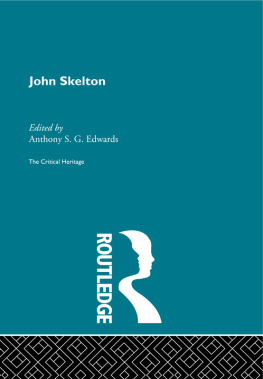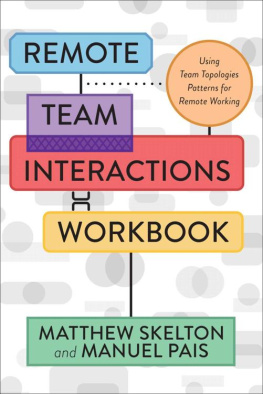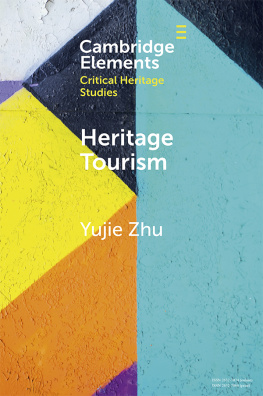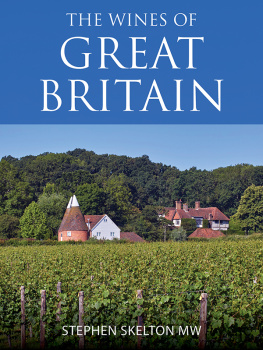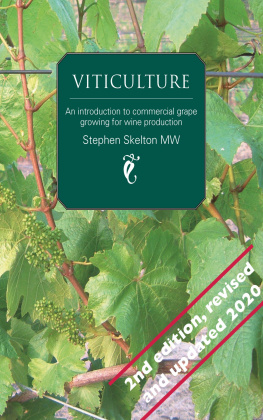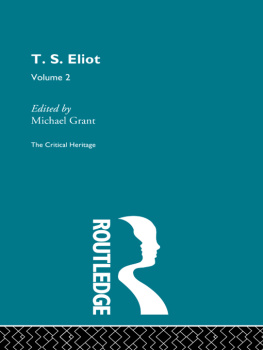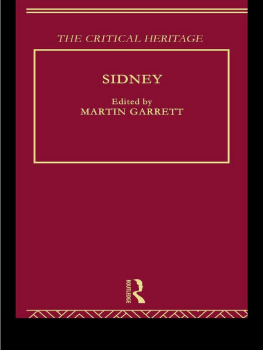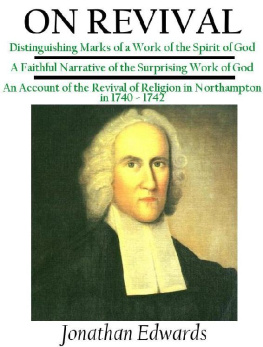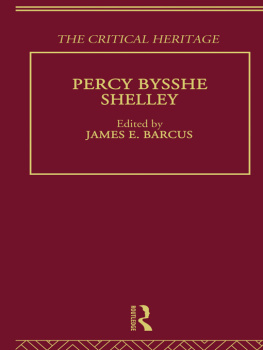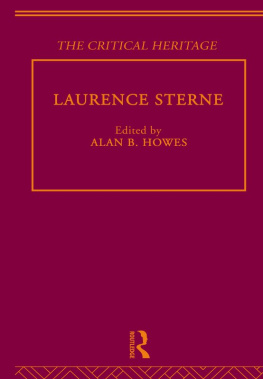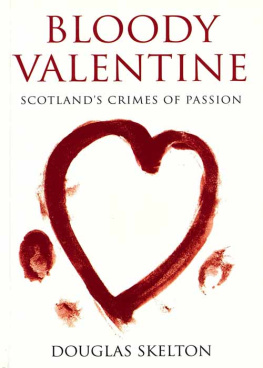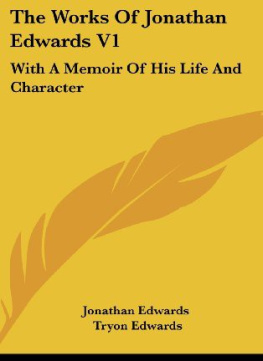Anthony S. G. Edwards - Skelton: The Critical Heritage
Here you can read online Anthony S. G. Edwards - Skelton: The Critical Heritage full text of the book (entire story) in english for free. Download pdf and epub, get meaning, cover and reviews about this ebook. year: 2013, publisher: Routledge, genre: Detective and thriller. Description of the work, (preface) as well as reviews are available. Best literature library LitArk.com created for fans of good reading and offers a wide selection of genres:
Romance novel
Science fiction
Adventure
Detective
Science
History
Home and family
Prose
Art
Politics
Computer
Non-fiction
Religion
Business
Children
Humor
Choose a favorite category and find really read worthwhile books. Enjoy immersion in the world of imagination, feel the emotions of the characters or learn something new for yourself, make an fascinating discovery.
- Book:Skelton: The Critical Heritage
- Author:
- Publisher:Routledge
- Genre:
- Year:2013
- Rating:4 / 5
- Favourites:Add to favourites
- Your mark:
- 80
- 1
- 2
- 3
- 4
- 5
Skelton: The Critical Heritage: summary, description and annotation
We offer to read an annotation, description, summary or preface (depends on what the author of the book "Skelton: The Critical Heritage" wrote himself). If you haven't found the necessary information about the book — write in the comments, we will try to find it.
Skelton: The Critical Heritage — read online for free the complete book (whole text) full work
Below is the text of the book, divided by pages. System saving the place of the last page read, allows you to conveniently read the book "Skelton: The Critical Heritage" online for free, without having to search again every time where you left off. Put a bookmark, and you can go to the page where you finished reading at any time.
Font size:
Interval:
Bookmark:
General Editor: B. C. Southam
The Critical Heritage series collects together a large body of criticism on major figures in literature. Each volume presents the contemporary responses to a particular writer, enabling the student to follow the formation of critical attitudes to the writers work and its place within a literary tradition.
The carefully selected sources range from landmark essays in the history of criticism to fragments of contemporary opinion and little published documentary material, such as letters and diaries.
Significant pieces of criticism from later periods are also included in order to demonstrate fluctuations in reputation following the writers death.
Edited by
ANTHONY S. G. EDWARDS

First published in 1981
Reprinted in 1995, 1999 by Routledge
2 Park Square, Milton Park,
Abingdon, Oxon, OX14 4RN
&
270 Madison Ave,
New York NY 10016
Transferred to Digital Printing 2007
Routledge is an imprint of the Taylor & Francis Group
Compilation, introduction, notes and index 1981 Anthony S. G. Edwards
All rights reserved. No part of this book may be reprinted or reproduced or utilized in any form or by any electronic, mechanical, or other means, now known or hereafter invented, including photocopying and recording, or in any information storage or retrieval system, without permission in writing from the publishers.
British Library Cataloguing in Publication Data
ISBN 015134013 (hbk)
ISBN 0415133963 (set)
Publishers Note
The publisher has gone to great lengths to ensure the quality of this reprint but points out that some imperfections in the original may be apparent
The reception given to a writer by his contemporaries and near-contemporaries is evidence of considerable value to the student of literature. On one side we learn a great deal about the state of criticism at large and in particular about the development of critical attitudes towards a single writer; at the same time, through private comments in letters, journals or marginalia, we gain an insight upon the tastes and literary thought of individual readers of the period. Evidence of this kind helps us to understand the writers historical situation, the nature of his immediate reading-public, and his response to these pressures.
The separate volumes in the Critical Heritage Series present a record of this early criticism. Clearly, for many of the highly productive and lengthily reviewed nineteenth- and twentieth-century writers, there exists an enormous body of material; and in these cases the volume editors have made a selection of the most important views, significant for their intrinsic critical worth or for their representative qualityperhaps even registering incomprehension!
For earlier writers, notably pre-eighteenth century, the materials arc much scarcer and the historical period has been extended, sometimes far beyond the writers lifetime, in order to show the inception and growth of critical views which were initially slow to appear.
In each volume the documents are headed by an Introduction, discussing the material assembled and relating the early stages of the authors reception to what we have come to identify as the critical tradition. The volumes will make available much material which would otherwise be difficult of access and it is hoped that the modern reader will be thereby helped towards an informed understanding of the ways in which literature has been read and judged.
B.C.S.
I should like to thank the following copyright-holders and publishers for permission to quote from various works: the estate of Humbert Wolfe and the Hogarth Press for permission to include an extract from Notes on English Verse Satire (1929); the estate of E. M. Forster and Edward Arnold Ltd for permission to include Forsters essay John Skelton from Two Cheers for Democracy (1950); the Times Literary Supplement for permission to include Edmund Blundens essay (1929); the estate of Richard Hughes and Chatto & Windus Ltd for permission to include the Introduction to Hughess Poems by John Skelton (1924); the Oxford University Press for permission to include the passage on Skelton from C. S. Lewiss English Literature in the Sixteenth Century (excluding Drama) (1954) by C. S. Lewis Reprinted by permission of Oxford University Press; Robert Graves for permission to reprint his essay An Incomplete Complete Skelton from the Adelphi (1931); the estate of W. H. Auden (Professor Edward Mendelson) for permission to reprint Audens essay from The Great Tudors (1935); G. S. Fraser for permission to reprint his essay from the Adelphi (1936).
I am also grateful to the various scholars listed in my Bibliography whose work has made my own task much easier. I owe a particular debt to Professor Robert S. Kinsman of the University of California at Los Angeles who has generously shared his knowledge of Skelton with me.
There are obvious difficulties in any attempt to present John Skeltons critical heritage. As Patricia Thomson has reminded us in the case of another sixteenth-century poet, Sir Thomas Wyatt, there were virtually no masters of criticism before the Restoration.() It is not until the publication of the second volume of Wartons History of English Literature in 1778 nearly 250 years after Skeltons death that we find the first extended evaluation of the poet. Before that, the materials for an understanding of the changing critical appreciation of Skelton are highly fragmentary. One has, in the main, to rely on passing allusions, brief comments, and such inferences as can be adduced from the evidence of Skeltons influence on the literature of his own and subsequent generations.
It is the fragmentary nature of much of Skeltons critical heritage that poses the greatest problem. Indeed, much of the sixteenth- and seventeenth-century material I have been able to assemble can only be termed criticism by the most elastic use of the term. Dispassionate, or even considered, judgments of his work are (at best) very rare. The chief problem is that Skeltons reputation, both during his own lifetime and subsequently, has been inextricably bound up with controversy, personal, political and aesthetic. Comparatively little of the early comment on his work is free from this identification of Skelton with partisan causes of various kinds.
But in some ways it is this very tendency to attract controversy that makes Skeltons reputation such a rewarding subject for study. By focusing on this particular figure it is possible to follow, in a revealing way, fluctuations in literary taste from the sixteenth century through to our own age. When one attempts to trace the vicissitudes of his critical status, Skelton emerges as a valuable representative figure, reflecting changing aesthetic and cultural responses to certain forms of literary expression, notably satiric and popular verse.
Much of the subsequent controversy about Skelton is mirrored in the contemporary responses to his work. Initially, for his contemporaries he seems to have been a symbol of all that was surpassing in English scholarly achievement and poetic excellence. Caxton, in the earliest recorded comment on Skelton, in the Preface to his translation of the Aeneid (1490), links Skeltons scholarship and his poetic skills and uses them as a way of vindicating the reliability of his translation ():
Font size:
Interval:
Bookmark:
Similar books «Skelton: The Critical Heritage»
Look at similar books to Skelton: The Critical Heritage. We have selected literature similar in name and meaning in the hope of providing readers with more options to find new, interesting, not yet read works.
Discussion, reviews of the book Skelton: The Critical Heritage and just readers' own opinions. Leave your comments, write what you think about the work, its meaning or the main characters. Specify what exactly you liked and what you didn't like, and why you think so.

